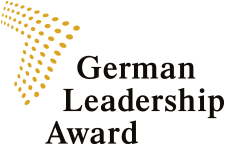Leadership 4.0
The management culture in German companies (German leadership) has traditional strengths and characteristics. It must be aligned more urgent than ever to the internationalization of business.
The guiding mantra of the 80s and 90s is outdated. Leadership in the 21st century demands a new paradigm; leaders of today put human beings at the center of the enterprise.
The 21st century creates trends that make ledership an increasingly complicated task.
- The Digital Revolution disrupts all industries and business models. Executives must minimize existing concerns, integrate and motivate employees.
- Technological innovations are embedded in products, manufacturing, processes, business models and the organization itself. Global thinking, positive thinking, readiness to learn and change, enhanced problem-solving skills and relentless customer focus are required.
- Today’s shortage of skilled labor poses an additional leadership challenge: Successful enterprises must clarify their company “brand” and value-system to recruit the best managers and skilled work force in the technical professions of tomorrow and to retain them permanently.
- Industrial Internet – As the world leader in advanced manufacturing and production technologies, Germany aims to be a world market leader for digital cross-linked production and the Internet of Things.
- Traditional diversity in education in German companies plays a prominent role, university graduates work closely and efficiently together with well-trained vocational staff, who trains and educates regularly.
- Generation Y | Millenials are the first generation that has grown up with internet and social media, technology-oriented and aware of the superiority of networks compared to centralized hierarchies, influenced by ”real-time, 24/7”mobile networks, increasingly merging private and professional spheres.
- Information overload caused by globalization and networking makes leadership even more complicated.
